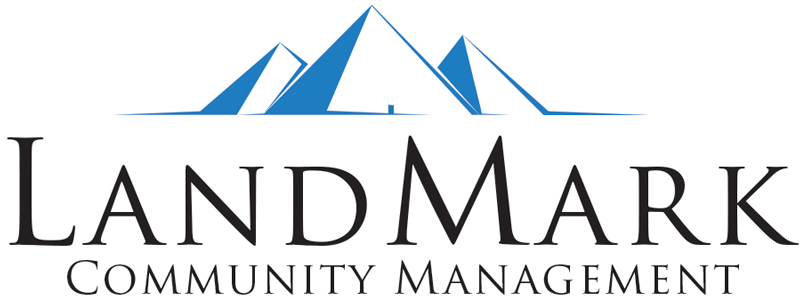Even the best of communities can experience HOA neighbor disputes. Homeowners associations need to understand how to deal with these problems before they escalate. What can the HOA do, and should the board get involved? Let’s find out.
HOA Neighbor Disputes: The HOA’s Responsibility
Can you complain to the HOA about neighbor disputes? This is a question many homeowners ask whenever they experience some kind of conflict with neighbors. However, the board should exercise careful discernment regarding HOA involvement in neighbor disputes. Minor disputes can be resolved by the residents while others need attention from the board.
What are the HOA neighbor disputes that require the association’s involvement? Here are some examples:
- Complaints regarding a neighbor violating HOA rules or the CC&Rs
- Conflicts that violate the Fair Housing Act (FHA)
- Claims that endanger the welfare, health, and safety of the community residents
- Disputes that constitute harassment (e.g., violent threats, verbal abuse, sexual harassment, physical harm, and assault)
- Claims that violate local, state, or federal law
These are just some examples of disputes that require HOA involvement. The HOA still has to examine each case and decide what to do. Moreover, the board must be responsive even if the case doesn’t need intervention. They should encourage the conflicting parties to talk things out and remain civil to keep things peaceful. The board may even propose professional mediation.
Examining the Conflict and Exercising Discernment
Should the HOA get involved in neighbor disputes? There’s no one-size-fits-all answer to this question. In each case, the board must investigate the situation carefully. They can assign someone to examine and document the dispute. If the HOA has partnered with an HOA management company, they can assign the HOA manager.
Apart from the examples above, the HOA must also consider how often the claim has been made. Moreover, they should survey the accused to hear both sides of the story. It may also require more attention if more than one person has been affected or multiple people support either side.
The board can decide what to do after getting all the facts straight. If the issue requires the board’s attention, the HOA must deal with the issue promptly. This is especially true if the dispute involves a violation of the law or the FHA. Sometimes, the HOA may also ask for legal advice from a lawyer. This helps the HOA prevent lawsuits and make wiser decisions.
HOA Responsibilities In Neighbor Disputes Involving Harassment
The homeowners association should stay out of small quarrels and minor HOA neighbor disputes as much as possible. However, there’s a fine line between simple arguments and what may constitute harassment. The HUD recognizes two kinds. The HOA is liable in both cases and must take action.
- Quid Pro Quo Harassment. When residents face undesirable demands or requests to engage in inappropriate conduct in return for a housing-related service, it counts as Quid Pro Quo Harassment.
- Hostile Environment Harassment. When residents face inappropriate, intense, or pervasive conduct that inhibits the person’s right to enjoy their home, it counts as Hostile Environment Harassment.
Remember, the association should always deal with HOA disputes between neighbors that count as harassment. This is true even if no one makes a report involving the incident. That’s because the HOA may be held liable if the board could possibly be aware of the affair.
In addition, the association should never ignore harassment cases involving protected classes under the FHA. Some states have added more protected classes, including age, sexual orientation, and student status. Don’t overlook a case involving obscene gestures, discriminatory acts, racial slurs, or targeted insults against these classes.
How to Handle HOA Neighbor-to-Neighbor Disputes

The board should have a standard operating procedure should the association decide to get involved. Here’s what your association can do.
1. Legal Consultation
If it’s a harassment case, the board must deal with the issue immediately. Consult with an attorney and investigate the complaint. Document the issue and all the steps the board has taken. Consider whether it’s valid and handle it properly. The board may also contact local law enforcement if there’s a safety or security threat.
Remember to evaluate the nature of the act and the context around it. Ensure to note the actions’ duration, frequency, location, scope, and severity. Moreover, remember to investigate the relationships between the involved parties.
2. Letter or Cease and Desist Notification
Once confirmed, the homeowners association can send the offender a letter or cease and desist notice. The HOA should reserve the latter for residents who break the law. A simple letter with a return receipt is enough if the offender has violated the governing documents.
In either case, remember to mention that the offending resident has violated the governing documents or the law. The board can outline specific behaviors and occurrences. Moreover, add a warning that says the perpetrator may face fines, sanctions, or legal action if they persist.
3. HOA Neighbor Dispute Mediation
If a letter is inappropriate, the association can address the issue through a three-way mediation. Invite both parties and include another person representing the association, like the HOA’s legal counsel. The association may also try formal mediation and split the cost if informal mediation is insufficient.
4. Sanctions and Fines
If the offender has violated the governing documents, refer to the CC&Rs for potential fines and sanctions. Imposing fines is often effective at enforcing the rules and preventing repeat offenses. The HOA can also sanction the offender by revoking their privilege to use shared amenities or temporarily suspending voting rights.
5. Legal Action
In extreme cases, the homeowners association may need to take legal action. The board can help the victims obtain a restraining order to protect themselves. If the perpetrator has broken the law, the HOA may also take them to court.
Dealing With Disputes Requires a Careful Hand
HOA neighbor disputes are tricky as they carry certain legal risks. The association must carefully handle each claim and diligently investigate. Ideally, the board should consult a legal professional to protect themselves from liability.
If the board can’t handle disputes themselves, hiring an HOA management company may help. Landmark Community Management has the skills and experience to help associations with internal disputes. Call us at 512-569-5527 or contact us online to request a proposal!


